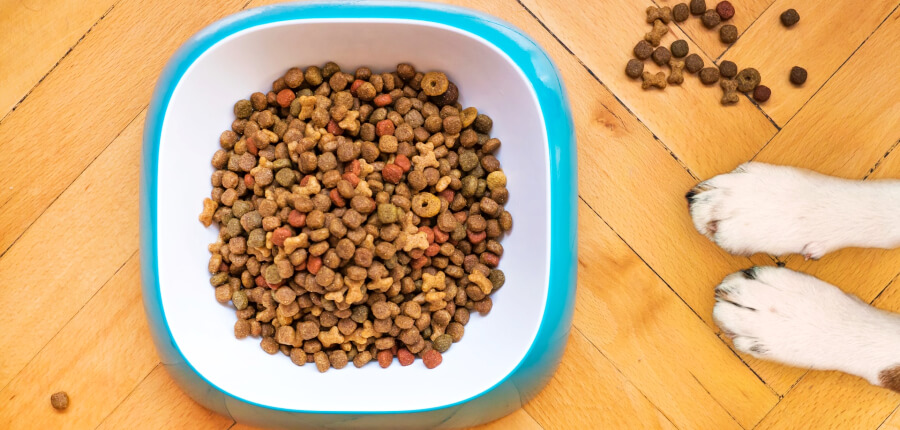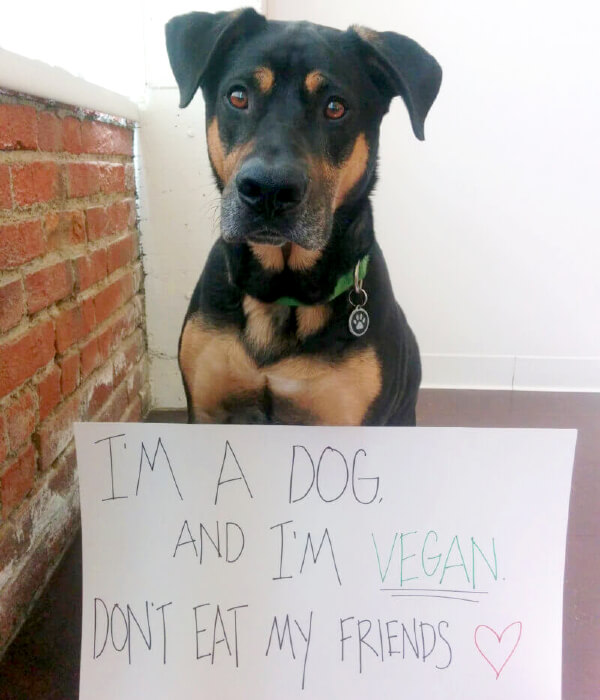If you’re feeding your dog raw food because you think it’s healthier than canned food or kibble, a new study presented at the European Congress of Clinical Microbiology & Infectious Diseases may give you paws.
Researchers at the University of Porto in Portugal made an alarming discovery when they examined dozens of dog-food and treat samples from supermarkets and pet shops in Europe. Enterococci—a genus of bacteria that’s often resistant to antibiotics—was present in more than half of the analyzed samples. More disturbingly, the study found multidrug-resistant Enterococci present in all the raw-frozen samples.
The World Health Organization considers antibiotic resistance one of the greatest threats to global public health, as an estimated 700,000 people around the world die every year from drug-resistant infections. The study’s authors note that with nearly 500 million dog companions worldwide, dog food may be a dangerously overlooked source of antibiotic resistance.
The good news is that there’s an easy way to keep our dogs from contributing to the spread of antibiotic-resistant bacteria—feeding them plants!
A vegan diet may seem like an unusual option for a dog—but considering the eating habits of dogs’ wild relatives, plant foods aren’t so unusual for them after all. Coyotes in California are known for their raids on crops of apricots, grapes, peaches, plums, and other fruits. In fact, coyotes and foxes may actually prefer fruits and berries when they can get them! When fruits are in season, they may account for over half of the red fox’s diet, despite the abundance of prey.
By contrast, the typical ingredients in commercial pet food—cooked cows and horses or parts of cancerous chicken flesh deemed unfit for human consumption—can hardly be considered “natural” sustenance for dogs. Equally unnatural are the chemical preservatives and artificial colors and flavors in most supermarket pet foods, some of which are suspected of causing cancer and kidney damage, among other diseases.
According to researchers at the University of Winchester’s Centre for Animal Welfare—who reviewed four studies on the nutritional adequacy of vegetarian diets for dogs—“a significant and growing body of population studies and case reports have indicated that cats and dogs maintained on vegetarian diets may be healthy—including those exercising at the highest levels—and, indeed, may experience a range of health benefits.”
Philadelphia-area veterinarian Lorelei Wakefield regularly sees healthy, thriving vegan dogs in her practice. “We don’t know yet what the healthiest diet is for them, but ethically, for someone who believes in vegan ideals, it makes sense,” she says. One of the world’s oldest dogs—a Scottish border collie named Bramble—lived to at least age 27 on a homemade vegan diet based on lentils and rice.
Of course, a vegan diet, like any other, must be nutritionally complete and properly balanced. All dogs are different, so it’s essential to monitor their health and adjust their diet according to their needs. For more information, see PETA’s “Meatless Meals for Dogs and Cats” factsheet.
Is your canine companion already thriving on a vegan diet? Let us know in the comments!






